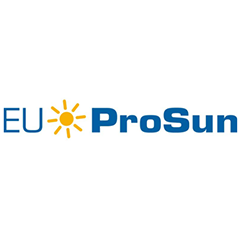The EU PV cells and modules producers have received support from 150 installers in their fight against dumped imports of Chinese PV cells and modules.
Today, EU ProSun submitted a list of 150 installers to the European Commission that expressly support the extension of the anti-dumping measures on imports of Chinese PV cells and modules. “As installers, we know that quality and reliability are of crucial importance for our customers”, says Johan Beijert of Zon & Co in the Netherlands. “In the interest of a sustainable PV market in the EU, the distorting effects of dumping and subsidies must cease.”
In addition, the Committee of SolarWorld AG’s certified business partners (Fachpartnerbeirat), which represents 800 independent German installers, also addressed the European Commission. “Dumping does not help anybody. Short-term gains will take their tolls by reducing supply variety and creating uncertainties among customers”, explained the Committee’s representatives in a letter earlier this week. EU-wide the Committee has a network of over 1,300 installers, the biggest of its kind in the EU.
Milan Nitzschke, President of EU ProSun added: “It is cynical of importers and Solar Power Europe to demand the termination of the anti-dumping measures. Anti-dumping rules are fundamental to guarantee a fair level playing field on the EU market. Demanding the termination of the measures is essentially like abolishing doping controls at the Olympic Games.”
The allegation that the minimum import prices on PV cells and modules have prevented new PV installations in the EU is unjustified in EU ProSun’s view. “Since July, PV module prices have dropped by 20% but this has not led to any market growth in the EU. The reason for the decrease in investments is not the price levels but the insecure regulatory environment. An increasing number of EU Member States abolish incentives for new installations. To the contrary, they have even started to impose charges on the feed-in of solar electricity. On top, restrictive procurement procedures also artificially reduce new installations.”, says Nitzschke.
Even the Chinese Government has recently openly acknowledged that the cause for the decline of new installations in the EU is not the minimum import price but the restrictive political measures at Member State levels.
Nitzschke concludes: “The EU PV sector would be well advised to rather join forces to improve the industry’s framework conditions and establish clear rules, than having individual groups trying to undermine international trade rules and to push the EU producers out of the market.”


























